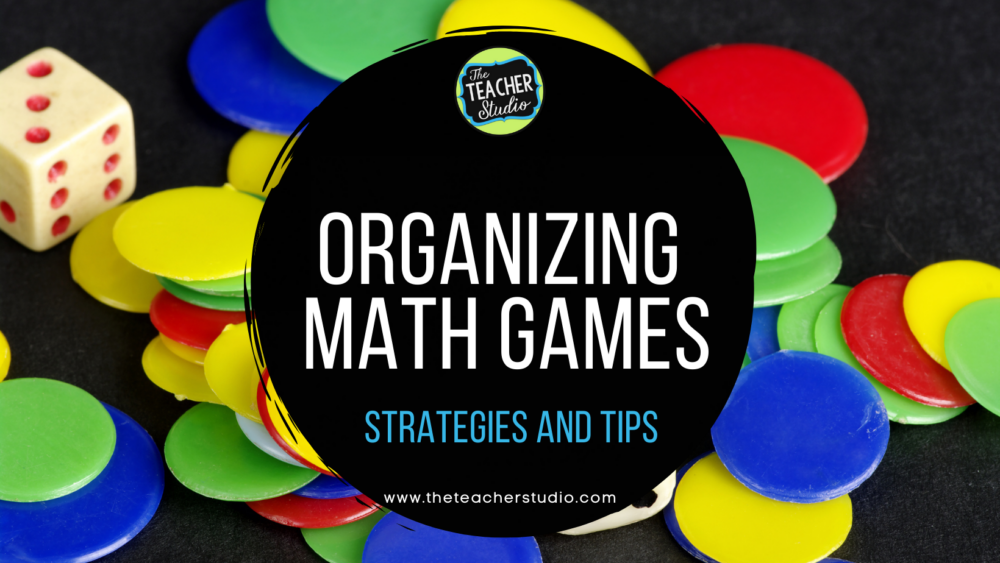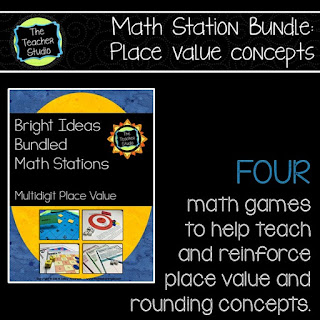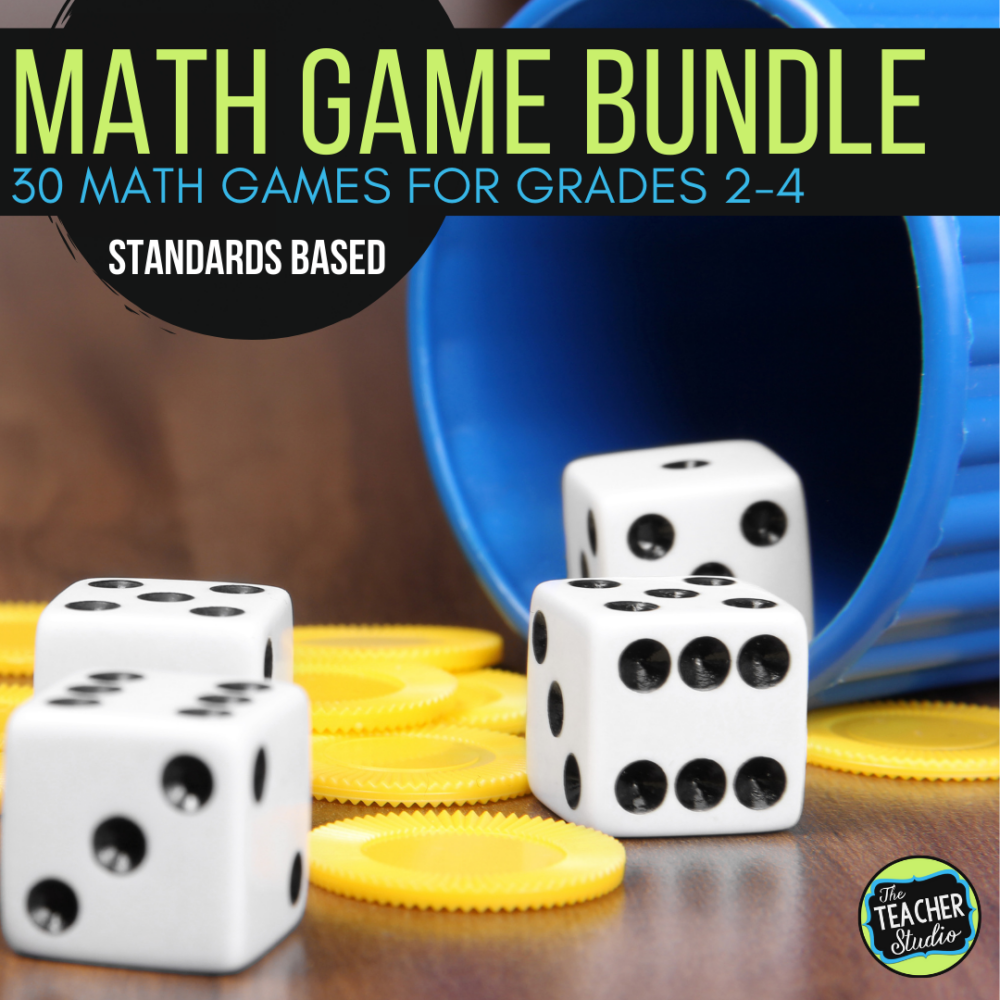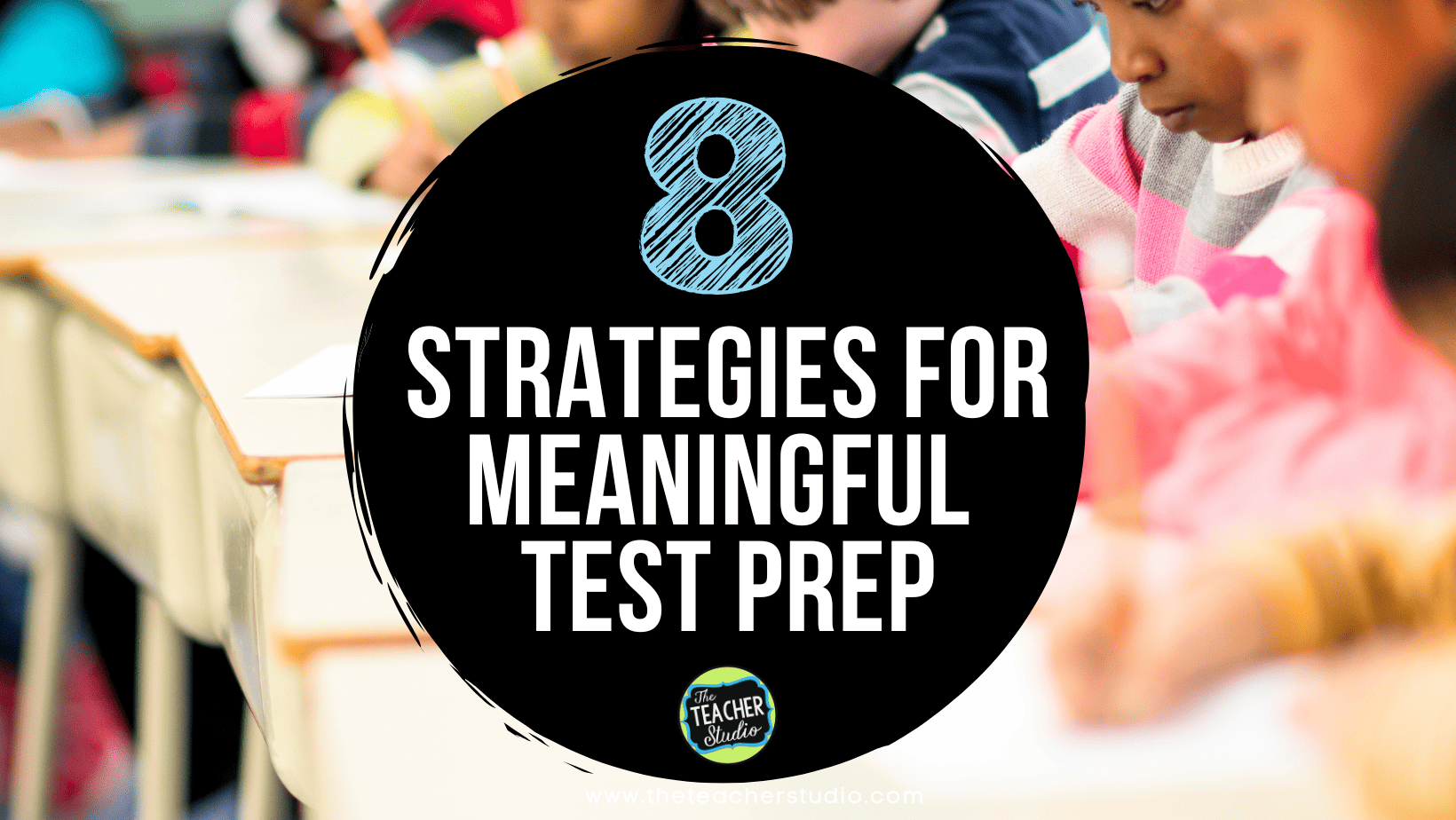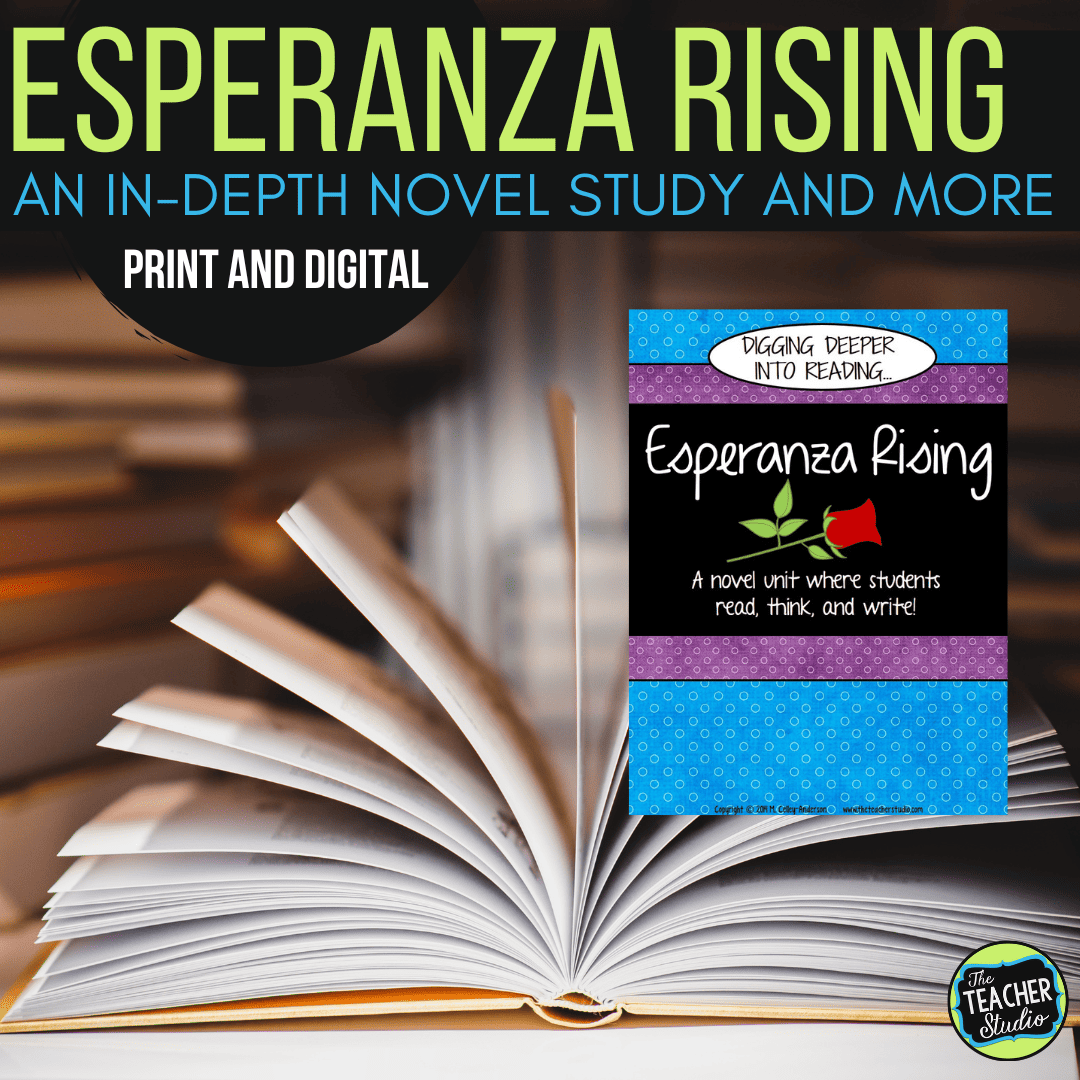One of my goals for this summer was to figure out some systems for organizing my math games and math workshop materials. I didn’t get everything accomplished that I wanted to, but I made some headway. Let me tell you my thought process and what I did!
First of all, I really wanted to focus on getting my intervention resources in a usable state–I have SO many games but I was always having to go dig for them and I just wasn’t being efficient. For me, these games are super important because I use them in so many ways. I thought I might share them with you in case you haven’t been using your games as flexibly as you might be!
1. As whole class review opportunities
I will often teach a math game to my class if I want them to use it during math workshop to review or practice a skill. This is a great way for students to play games together that may not get to work together often because of different skill levels. I sometimes play games in this way at the end of a unit–or to “spiral” instruction where I want to keep working on a skill from previous units.
2. As intervention lessons
Using games as true “learning activities” in intervention groups is one of my favorite things to do. For one thing, students who need remediation and intervention probably didn’t learn the concept during the initial lesson–so reteaching in the same way makes no sense. Using a “game” format where I can play with the group, coach, instruct, and have fun is a perfect way to provide good, targeted instruction and really see what students can and can’t do–in a fun and engaging way.
3. As small group skill practice
Similarly, if students don’t really need reteaching but might need additional practice, having small groups who need work on specific skills or strategies play relevant games (‘learning activities”) to reinforce the skills is a great way to keep them focused and on task. Similarly, when students play games, they are working cooperatively, using math talk, all while practicing necessary math skills.
4. As replacement homework
One thing that has become painfully obvious to me over the years is that students who struggle in math, struggle with math homework–and for a number of reasons. First of all, often the math homework (although I don’t give much and I tend to give review work as homework…but that’s another post!) is simply too difficult. If a student is performing several grade levels below expectation, even review work is not appropriate. After all, we certainly don’t want students practicing math INCORRECTLY, right?
Similarly, many students who struggle don’t have the support at home to help…either because the family doesn’t have the skill set to assist (math has changed quite a bit since people our age went to school!) or any number of other reasons. Certainly motivation is a problem as well…and the last thing we want is our frustrated students to get MORE frustrated. What’s an easy solution? Send math games home! What a perfect way to build relationships with home, provide that fluency practice that is needed, and actually get students feeling good about doing homework! Check out below for some ideas about how to organize this so you don’t lose track of your games.
5. As fluency work
Finally, some skills just need constant reinforcement to build fluency and automaticity. We want our students to know their math facts and other critical math skills instantly–like “sight words” in reading. Once we have taught students strategies, they need lots of reinforcement to build those connections in the brain so they cement the knowledge. Working on games is an engaging and meaningful way for students to build that fluency.
Organizing math games is key–don’t waste time looking for materials!
So…to try to get a handle on the dozens and dozens of games in my collection I started to make some labels that show the game name, a photo, and the skills that the game works on.
I actually made TWO copies of each label–one to stay in the bag, and one to use as a “check out card”–perfect for sending home for homework!
Some of my games I stored in plastic zip bags…and just use smaller bags for small pieces. I love to keep all supplies in the bag…cards, dice, counters–whatever is needed so no time is wasted–whether I am using the game for a group or students are grabbing it to play. The less “transitions” and places to move to get settled, the less management issues we have.
The zip bags work great…but I wanted to find a way to use something more durable so that I can send games home and have them feel more “professional” and less likely to be thrown away. I was at a workshop and got a free sample of a “Seat Sack” by www.seatsack.com and my brain started turning. Lots of teachers love these for reading groups (especially in the primary grades), but I thought they were perfect for math games!
I contacted the company and got a bunch more and I am LOVING how durable and easy to use they are. All the pieces for the games fit perfectly and they have that awesome sliding pocket at the top for me to put the game labels! I am hooked. I can grab a bag to use with an intervention group OR know I can send the bag home with everything remaining safe inside! The company was super easy to work with and the bags came really fast. DEFINITELY looking forward to having something more substantial this year. I really want to increase how much home/school math work I do.
A little something to help…
One other task I wanted to accomplish (and I’m partway there!) was organizing math games in “clusters”. If I want to work on place value skills, I can grab those games to either use in groups or to use as a part of math workshop. I thought YOU might like this convenience as well, so I have (so far) made 3 bundles of four games. And I made the tags to go in the storage bags as well! These are all Dollar Deal games so they are available individually as well, but you can save a bit by buying 4 at a time and you get the labels as well if that is something interesting to you. If it looks like this is something people are interested in, I’ll start creating more bundles! I’d love to hear your feedback!
Speaking of organizing math games? Check out this bundle of THIRTY games all set and ready for you to print! Just click HERE or the image below.
Want to read a bit more about using math games? THIS POST can help you out!

